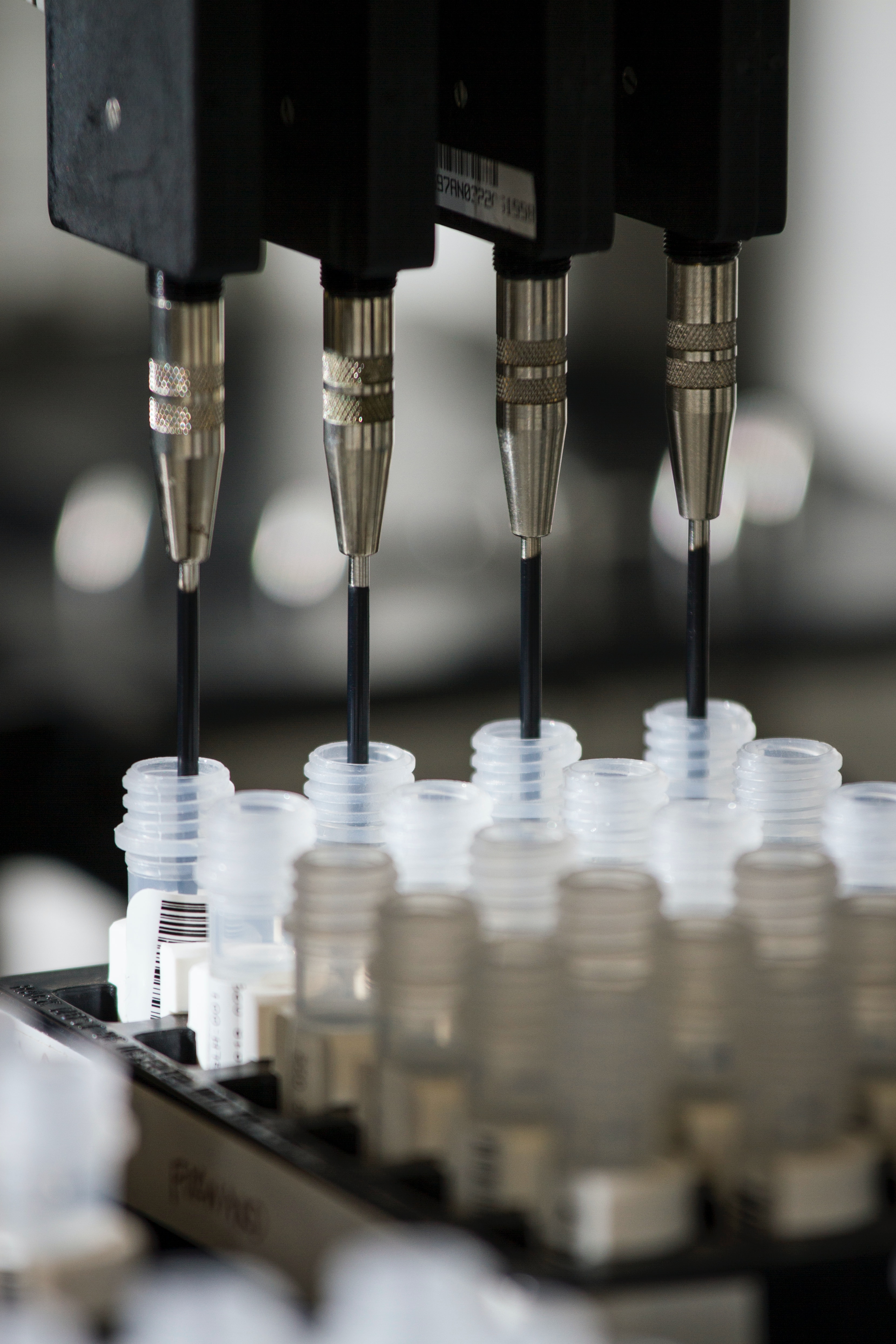Photo by National Cancer Institute on Unsplash
Today there are rapid advances in Artificial Intelligence, changing the way we work. With an increasing population and a warming climate, technology is also potentially helping how the world feeds itself. Selective breeding of crop varieties as practised in the past can now be accelerated by planned genetic enhancements, replacing the slow process of natural selection over centuries for the immediate benefit of humanity today.
An early product to receive a high-tech boost was “Golden Rice”, following research by the Rockefeller Foundation in 1982. This was designed to address Vitamin A deficiency affecting millions of people worldwide. Lack of Vitamin A can cause blindness as well as higher chance of mortality. The objective was to find a way of fortifying basic foods with beta-carotene, and the solution was to use Genetically Modified Organisms (GMOs) to splice two biosynthesis genes from a daffodil and a soil bacterium respectively. The result was a 100-fold increase in beta-carotene and countless lives saved.
Not everyone approved. In 1992 the word “Frankenfoods” was catchily coined by opponents of GMOs to apply to any tampering with nature which they claimed could deliver the equivalent of a Frankenstein monster. Nonetheless, in 2018 The Food and Drug Administration in the US declared the use of GM technology as safe. Despite this endorsement, the EU introduced a tight regulatory framework which paralysed the technology in Europe: only one GM crop is grown anywhere within the EU, an insect-resistant variety of corn in Portugal and Spain.
As the basis for environmental law the EU Commission has adopted a risk-averse approach founded upon “the Precautionary Principle”: when there is lack of absolute scientific certainty, it is better to be safe than sorry.
The discussion has now moved on thanks to the development of ‘gene-editing’, which involves selectively deleting or boosting specific genes already within a plant without splicing in genes from other species.
Prompted by a 2018 ruling from the European Union’s top court that any techniques to alter the genome of an organism should still be governed by existing laws on GMOs, the Commission concluded its 2001 legislation was no longer fit for purpose. In April 2021 it called for a re-think which could treat gene-edited crops differently. A lengthy consultation process with industry and national Governments of all Member States is now heading to a conclusion. By definition the UK is not included.
France, the EU’s biggest agricultural producer, has already announced support for treating gene-editing techniques differently to GMOs. German Agriculture Minister Julia Kloeckner has also welcomed an “overdue modernisation” of the legal framework for gene-editing. When France and Germany agree, it does make EU decision-making easier.
Speaking at a meeting of EU Member State Agriculture Ministers last September, Spain’s Luis Planas joined the gene-editing supporters’ club, branding such techniques as “a magnificent tool to ensure that crops need less water, fewer fertilisers, and are more resistant to climate change”, a view echoed by Agriculture Commissioner Janusz Wojciechowski. It looks as if the tide of history in now turning, and that the EU may come up with fresh proposals later this year. The question is: what will they decide? The UK is in a perfect position to help.
The National Institute of Agricultural Botany has been breeding new varieties of crops for over a century and the UK is a world leader in research into plant genetics. The Rothamsted Centre in Hertfordshire has already begun a field trial of wheat which has been genetically edited to remove carcinogens when bread is toasted: other trials include a sugar beet more resistant to viruses. The Centre’s Science Director, Jonathan Napier, said proudly that “the UK’s research in this area really punches above its weight.” The challenge now is to keep punching within any future EU rules.
England is already a step ahead having passed the Genetic Technology (Precision Breeding) Act 2023 which allows trials to take place within a clear framework of law. It applies only to England because, typically, Ministers in Westminster did not think to engage with the devolved administrations in Wales and Scotland. But have they thought to initiate engagement with the EU?
This should be the next step. The UK has a unique opportunity to help the EU shape its new regulatory regime. Whenever we export to the EU we have to conform to its laws, so we should proactively offer to help the Commission devise the legislation in the first place. The EU has no need to develop separate regulations from scratch when the UK is already well advanced in establishing what they should be.
Engaging with the EU to shape its own internal laws – in our own interest – requires a complete change of mind-set by the current UK Government. Perhaps the first step should be to apply gene-editing to Conservative politicians?




